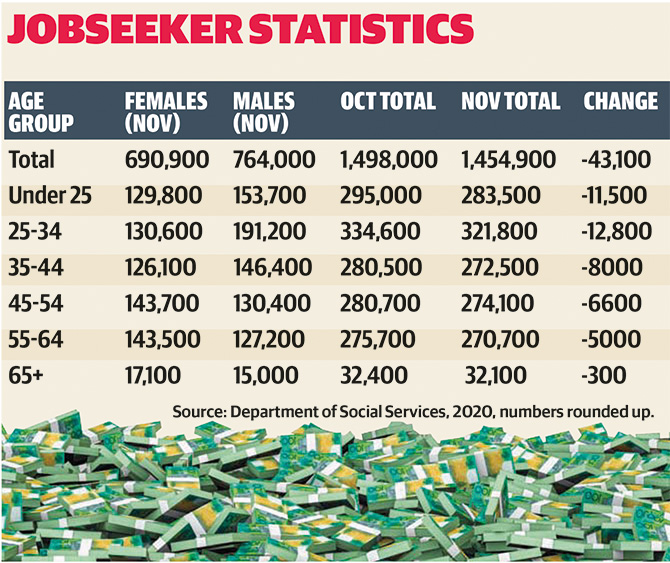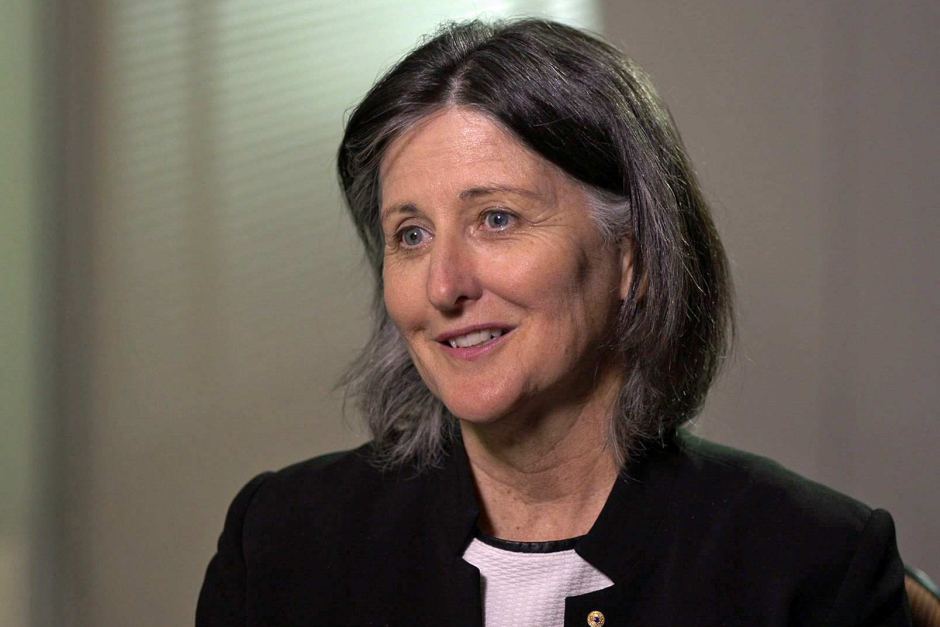OLDER Australians are among those struggling the most to find work and are still relying on Jobseeker payments, which have been cut by$100 a fortnight.
The federal government’s coronavirus supplement to Jobseeker has been reduced from $250 to $150 a fortnight from today.
New Department of Social Services figures show 44,000 fewer people received welfare payments in November as the number of Australians on Job-Seeker and youth allowance fell from 1.498 million in October to 1.454 million in November, a drop of 2.9 per cent.
But only 0.8 per cent of those aged 55 and over came off welfare in November. Another age groups, many more people returned to work, especially those aged 25 to 34.
In that age bracket, 12,800 fewer people relied on Job-Seeker, a drop of 3.8 per cent.
The Jobseeker payment is fortnightly payment of at least$565.70 for singles with no children. The amended coronavirus supplement until December took it up to $815.70 fortnight, but it will now fall to $715.70.
Financial Counselling Australia chief executive Fiona Guthrie said it was “cruel” to slash welfare payments.
“It’s definitely going to make it harder to make ends meet,” she said. “We’re expecting the National Debt Helpline will start getting a lot busier once government income support reduces.
“People don’t have enough money to live on, it’s impossible. This is almost the worst time to be trying to manage on less money because you have Christmas bills coming in and children going back to school.
“Social Services Minister Anne Ruston said it was good to see Australians shifting off welfare payments and returning into work.
“It is pleasing that we are seeing Australians moving off of social security payments and back into the workforce, as economic confidence builds and the labour market outlook improves,” she said.
“As we go forward, the government’s absolute focus is on jobs creation through Job-Maker and helping people tore-skill through Job Trainer because we know that getting job is a real game-changer in any one’s life.”

Gasser Elkharibi, 28, is one of the tens of thousands of Australians who returned tithe workforce in the October quarter. The 28-year-old was made redundant from his job as a projects manager in July and was reliant on welfare forth first time in his life.
“I applied for about 25 to 30 jobs before I got my job now”, Mr. Elkharibi said.
“I’ve worked my whole life, I have a mortgage and loans and responsibilities. It was very scary and not working and sitting at home demotivates you. This was my first time receiving assistance, but I’m ecstatic to be back at work now.”
He has taken up a full-time role as area and projects manager at eatery Burgertory in Parham in Melbourne.
National Seniors Australia spokesman Ian Henchmen said many older Australians struggle to get work because employers had become “ageist”.
Small Business Australia founder Amanda Rose agreed, saying it was harder for older Australians to get back into the workforce post pandemic.
“People who are over 50, they are less likely to get job. They are looking for work and the have a better work ethic and they want to work but people simply aren’t hiring them,” she said.



